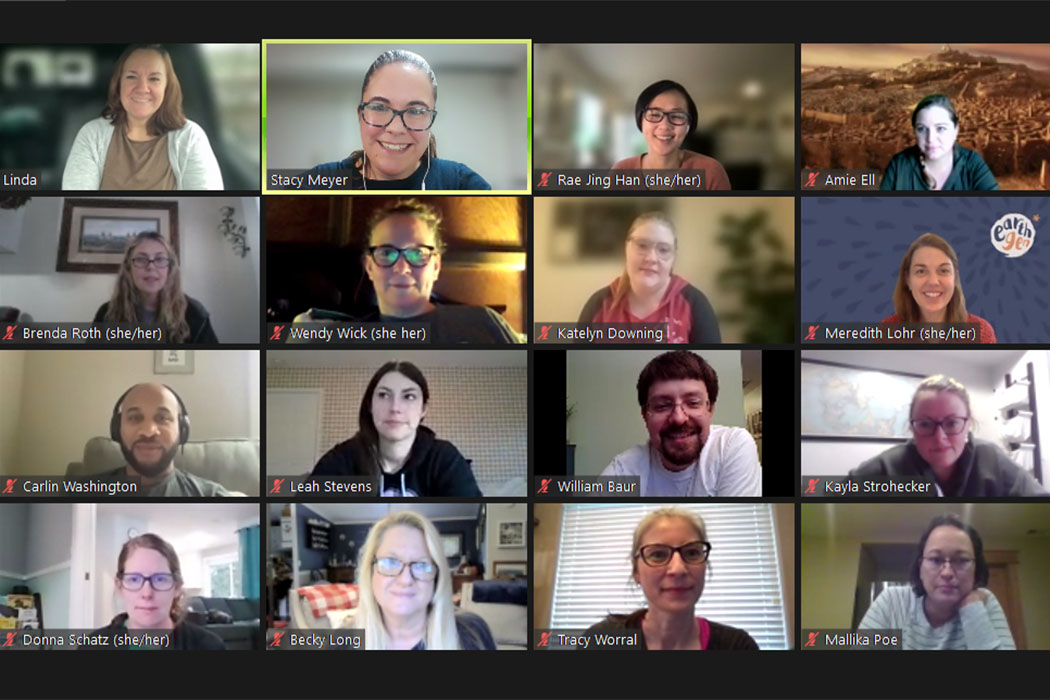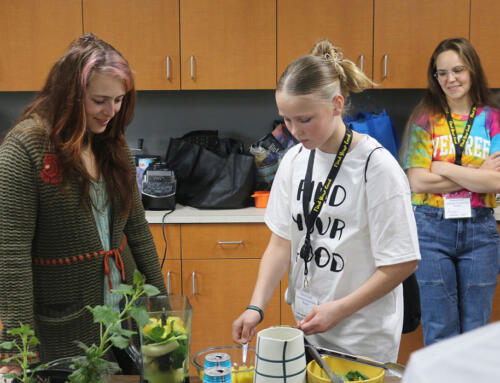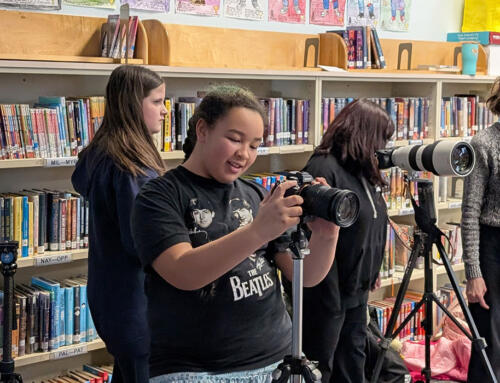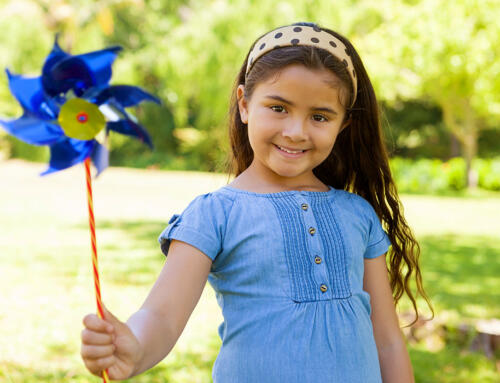Attendees of the latest cohort of the Climate Justice League left their November 6 kickoff meeting inspired. “The idea that one person can make a difference has been an inspiring addition to this learning experience, and I am motivated in figuring out how I can be a positive influence to others,” said one of the 16 Climate Justice League participants.
The Climate Justice League is a regional group of teachers that meet on a monthly basis, with five overarching goals:
- Build knowledge and share resources around climate justice.
- Learn how climate justice connects with issues in our local communities.
- Center the perspectives of Black, Indigenous, and People of Color who are disproportionately impacted.
- Create a professional learning community of educators committed to climate justice work.
- Support teachers in their reflection and implementation with students.
During this first session, teachers explored climate justice issues by examining an article in the New York Times, “When Hard Jobs Turn Hazardous”, about how farmworkers in Southern Washington State were impacted by the extreme heat this past summer. The group then began brainstorming ways in which they could support their students in taking action on a climate science-related issue in their local communities.
Linda Garcia joined the session as a guest speaker. Garcia is the 2019 Goldman Environmental Prize winner for her grassroot activism that overturned the plan to put a massive fossil fuel transportation hub on the edge of her neighborhood in the Fruit Valley neighborhood of Vancouver, Washington. Garcia shared her insights and advice about how to navigate challenging conversations with the new cohort, and encouraged them to make their voices, and their students’ voices, heard.
The Climate Justice League, developed through a partnership between ESD 112 and EarthGen, is now in its third year. In 2022, there will be three separate groups: the Southwest Cohort (serving teachers in ESD 112 and CRESD 113), the Northwest Cohort (serving teachers in PSESD and NWESD 189) and the East Cohort (serving teachers in NEWESD 101, ESD 105, ESD 123 and NCESD 171). The cohorts will allow for smaller groups of teachers to collaborate on issues that are central to their local regions, with all three groups coming together during the final session in 2022 to share their learnings with each other.
Learn more about the Climate Justice League, and ClimeTime’s Climate Science Learning program.




